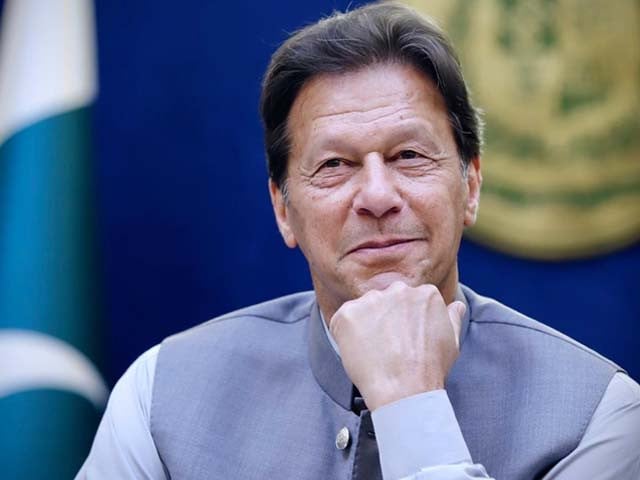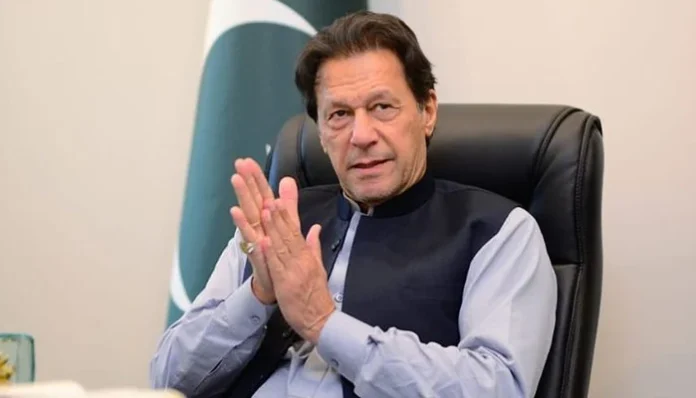Prime Minister of pakistan Imran Khan Biography, Get the latest cricket updates, political news, and breaking stories all in one place.
Prime Minister Imran Khan Biography
Imran Khan Biography
Imran Khan is a cricketer-turned-politician who is the 22nd and current Prime Minister of Pakistan. However, his continuance in the PM office seems uncertain as a coalition of three opposition parties, Pakistan Muslim League (N), Pakistan People’s Party (PPP), and Jamat Ulema-Islam (F), have jointly submitted a no-confidence motion against him to the Speaker of the National Assembly. Not only this, many of his party members and alliance partners have turned against him. Amid speculations that Imran Khan’s government will soon be ousted, let us take a look at his life.
Imran Khan Biography, Prime Minister Cricket, News, Politics
Pakistan Prime Minister Imran Khan is facing the biggest challenge to his rule since being elected in 2018. Khan is being accused by the opponents of dragging the country into deeper economic turmoil. No prime minister in Pakistan’s history has ever been ousted from his office through a no-confidence motion.
On 8th March 2022, the coalition of three Opposition Parties namely Pakistan Muslim League (N), Pakistan People’s Party (PPP), and Jamat Ulema-Islam (F) had submitted the No-Confidence Motion. After the tabling of the No-Confidence Motion in the National Assembly against Imran Khan with a total of 161 votes in favour, the proceedings were adjourned till 31st March 2022.
Pakistan Interior Minister Sheikh Rasheed Ahmad on 29th March 2022 announced that the discussion on the No-Confidence Motion against Pakistan’s PM Imran Khan will start in the National Assembly on 31st March 2022 and voting on it will be held on 3rd April 2022. During the National Assembly scheduled on 31st March 2022 for the debate on the No-Confidence Motion against PM Imran Khan, the United Opposition has demanded that the election of a new Prime Minister be included in the agenda.
| Name: | Imran Khan |
|---|---|
| Born | October 5, 1952 |
| Birthplace | Lahore, Punjab, Pakistan |
| Education | Bachelor’s degree in Economics and Politics |
| Occupation | Politician, former cricketer, philanthropist |
| Political Party | Pakistan Tehreek-e-Insaf (PTI) |
| Positions held | Prime Minister of Pakistan (2018 – present), Chairman of PTI, Member of National Assembly |
| Cricket Career | Former captain of the Pakistan national cricket team, led Pakistan to victory in the 1992 Cricket World Cup |
| Philanthropy | Founded Shaukat Khanum Memorial Cancer Hospital & Research Centre, Namal University |
| Achievements | Received Hilal-i-Imtiaz, Pakistan’s second-highest civilian award, for his services to the country |
Early Life and Cricketing Career
Imran Khan was born on October 5, 1952, in Lahore, Pakistan, into a well-educated and affluent Pashtun family. His early education at Aitchison College and later at Royal Grammar School in Worcester in England, laid a foundation that was both princely and privileged.
Cricketing Achievements
- Captaincy of Pakistan Cricket Team: Imran Khan led Pakistan to its first and only Cricket World Cup victory in 1992.
- Renowned All-rounder: With over 3,500 runs and 362 wickets in Test cricket, his career statistics are often cited among the greatest in cricket’s history.
Imran’s cricketing prowess was not just limited to his on-field skills but also his charismatic leadership, which galvanized the Pakistani team. His retirement from cricket marked not only not only the end of an era but also the beginning of his more tumultuous venture into politics.
Philanthropic Initiatives
Before fully stepping into political waters, Imran Khan focused on social issues, most notably in healthcare and education. The creation of Shaukat Khanum Memorial Cancer Hospital & Research Centre in 1994 is a testament to his commitment to societal welfare and stands as one of Pakistan’s leading cancer care institutions.
Educational Contributions
- Namal College was founded in 2008 as an associate college of the University of Bradford. It represents Khan’s vision for accessible, quality higher education in Pakistan.
Political Ascent
Transitioning from a sports hero and social activist to a political figure was a high-stakes metamorphosis for Khan. Founding the Pakistan Tehreek-e-Insaf (PTI) in 1996, he embarked on a long and often wavering route to political relevance.
Milestones in Politics
- 1996: Formation of PTI, focusing on anti-corruption, education, and health reform.
- 2013: PTI emerges as the second largest party by popular vote in general elections.
- 2018: Imran Khan becomes the Prime Minister of Pakistan after PTI wins the general elections.
Imran’s time in office was marked by his efforts to streamline governance and curb corruption, although his tenure was also criticized for economic management and foreign relations strategies.
“With great power comes great responsibility, and nowhere is it truer than in the case of a nation’s leader.” – Excerpt from a speech by Imran Khan.
Challenges and Controversies
Like any public figure, Khan’s career has had its share of controversies and challenges. From accusations of political intransigence, judiciary standoffs, to dealing with severe economic trials, Khan’s navigation through these turbulences has been keenly watched both domestically and internationally.

Imran Khan Biography: Public Image in the World
1. In 2013, Mohammad Hanif termed Khan’s support as well-flavored “to the educated middle classes but Pakistan’s main problem is that there aren’t unbearable educated urban middle-class citizens in the country” in The Guardian.
2: In 2012, Pankaj Mishra characterised Khan as a “cogent picture out of his—and Pakistan’s—clashing identities,” subtracting that “his identification with the suffering masses and his attacks on his affluent, English-speaking peers have long been mocked in the living rooms of Lahore and Karachi as the hypocritical ravings of “I’m the Dim” and “Taliban Khan”—the two favorite monikers for him” in The New York Times.
On March 18, 2012, Khan did not shepherd the India Today Conference considering of Rushdie’s presence, citing the “immeasurable hurt” that Rushdie’s writings have caused Muslims virtually the world. Salman Rushdie criticized Khan and stated that he was a “dictator in waiting.”
4: In 2011, Richard Leiby termed Khan as an underdog, subtracting that he “often sounds like a pro-democracy liberal but is well-known for his cosiness with inobtrusive Islamist parties” in The Washington Post.
5: In 2014, Ayesha Siddiqa said that “while we can all sympathise with Khan’s right to transpire the political tone, it would be worthwhile for him to envision how he would, if he did become the prime minister of this country, put the genie in the bottle” in The Express Tribune.
6: H. M. Naqvi termed Khan as a “sort of a Ron Paul figure”, subtracting that “there is no taint of self-indulgence and there is his anti-establishment message.”
7: Declan Walsh described Imran Khan as a “miserable politician,” observing that, “Khan’s ideas and affiliations since inward politics in 1996 have swerved and skidded like a rickshaw in a rainshower… He preaches democracy one day but gives a vote to reactionary mullahs the next.”[228] Khan has moreover been accused by some opponents and critics of hypocrisy and opportunism, including what has been tabbed his life’s “playboy to puritan U-turn” in The Guardian.
8: Najam Sethi stated, “A lot of the Imran Khan story is well-nigh backtracking on a lot of things he said earlier, which is why this doesn’t inspire people.”
9: Author Fatima Bhutto has criticised Khan for “incredible coziness, not with the military but withdictatorship,p” as well as some of his political decisions.
10: During his cricket career, Khan was featured in several ads: Pepsi Pakistan, Brooke Bond, Thumps Up (with Sunil Gavaskar), and Cinthol.
11: Bollywood two-face Dev Anand offered him a role in his sports action-thriller movie Awwal Number (1990) but Khan refused the role citing his lack of vicarial skills and Aditya Pancholi was seen in that role.
12: In 2010, a Pakistani production house produced a biographical mucosa based on Khan’s life, titled ‘Kaptaan: The Making of a Legend.’ The title, which is Urdu for ‘Captain’, depicts–Khan’s captaincy and career with the Pakistan cricket team, which led them to victory in the 1992 cricket World Cup, Khan as a playboy, the death of his mother; his efforts and endeavours in Towers, the first cancer hospital in Pakistan, the first Chancellor of the University of Bradford; to the towers of Namal University.
Read More: The Verified Pakistan
Economic and Judicial Tensions
- Economic Challenges: Facing criticism over handling economic deficits and international debts.
- Judicial Conflicts: Stirs within the judicial domains due to several standoffs with the judiciary over policy and governance issues.
Future Prospects and Legacy
As Imran Khan continues his journey in Pakistani politics, his legacy—whether as a national hero or a polarizing figure—remains in the making. His impact on Pakistan’s political landscape and his potential to shape the future trajectories of governance are subjects of robust debate and discussion.
Ongoing Political Influence
- Media Presence: Continuously active in political discourse through media and public appearances.
- Policy Influence: Despite challenges, many of his policies and visions still hold sway among large sections of the Pakistani populace.
In conclusion, Imran Khan multifaceted journey from cricketing fields to the prime ministerial office encapsulates a tale of relentless ambition, undeniable talent, and persistent controversy. His saga offers myriad lessons on leadership, resilience, and the complexities of wielding power in tumultuous times. Whatever the future holds, Imran Khan’s legacy will undeniably be a blend of triumph and trial, ground-breaking yet contentious.
FAQ’s
Q1: What is Imran Khan’s current position in Pakistani politics?
A1: Imran Khan is the 22nd and current Prime Minister of Pakistan.
Q2: What are some challenges Imran Khan is currently facing in his role as Prime Minister?
A2: Imran Khan is facing challenges such as economic turmoil and a no-confidence motion submitted by a coalition of opposition parties.
Q3: What are some of Imran Khan’s achievements in cricket?
A3: Imran Khan led Pakistan to victory in the 1992 Cricket World Cup and is renowned as an all-rounder with over 3,500 runs and 362 wickets in Test cricket.
Q4: What philanthropic initiatives has Imran Khan been involved in?
A4: Imran Khan founded the Shaukat Khanum Memorial Cancer Hospital & Research Centre and Namal University, focusing on healthcare and education.
Q5: What is the current status of the no-confidence motion against Imran Khan?
A5: The discussion on the no-confidence motion against Imran Khan started on March 31, 2022, in the National Assembly, with voting scheduled for April 3, 2022.







